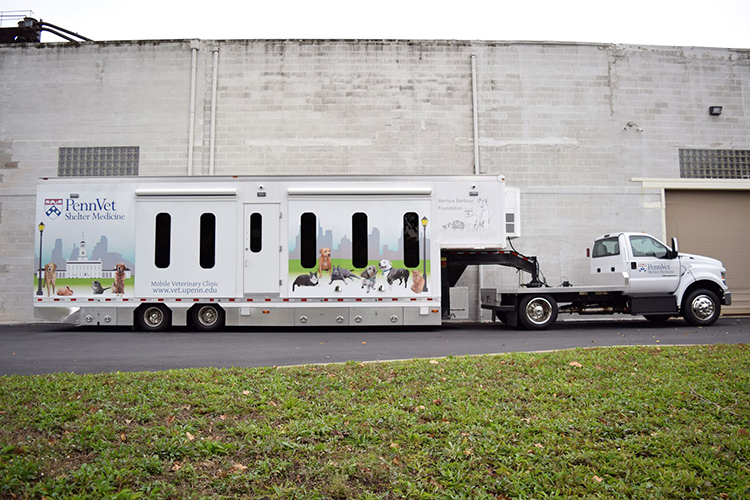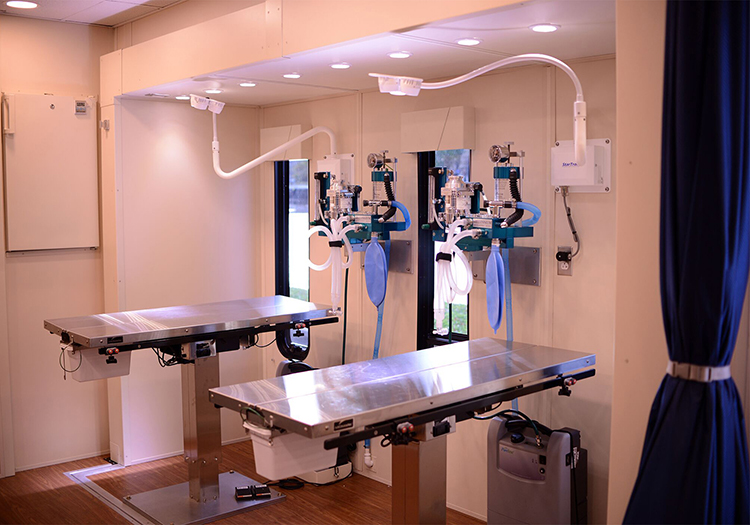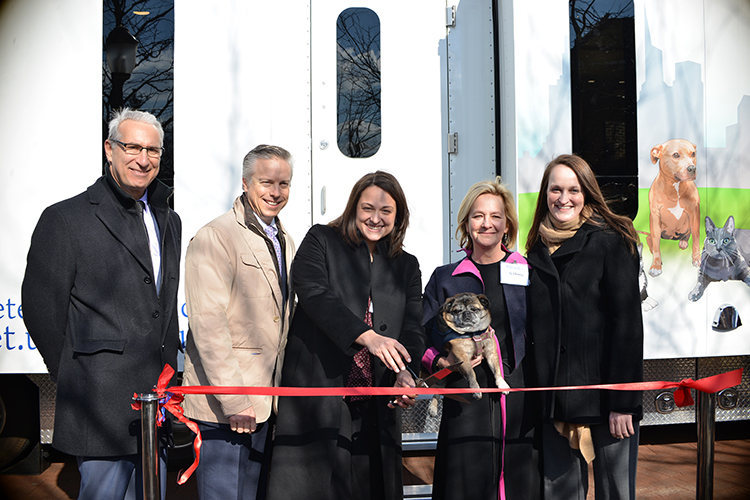Penn Vet’s Mobile Clinic: Bringing More Lifesaving Services to Philadelphia Area Animal Shelters

In 2016, there were 50,000 animal intakes in the Philadelphia region’s animal shelters. The University of Pennsylvania’s School of Veterinary Medicine (Penn Vet) Shelter Medicine Program provides clinical care support to several of these shelters and works to reduce the number of animals entering them to begin with. The program is about to increase its regional reach and impact with the Penn Vet Mobile Clinic, a new 40-foot-long facility-on-wheels that will help more vulnerable animals.
Penn Vet unveiled the clinic at a January 25 ribbon cutting ceremony. The Mobile Clinic initiative is supported in part by the Bernice Barbour Foundation and PetSmart Charities.
When it launches this spring, the Mobile Clinic will offer services and equipment that can be challenging for shelters to afford or accommodate. In addition to exam, surgery and recovery spaces on board, there are diagnostic tools such as a microscope, radiography, ultrasound and blood machines. Eventually, the roaming facility will also have dental care equipment.
“When planning the Mobile Clinic, we looked at gaps across the area and discussed how we can be a consistent, valuable resource to the Philadelphia community,” said Brittany Watson, Penn Vet’s director of Shelter Medicine. “Our animal welfare partners, who often operate on budgets three to four times less than they need, are confined by their brick and mortar facilities. We will be bringing them a nimble, fully operational, independent clinic that can be directed to where the need is greatest.”
On a weekly basis, the clinic will be onsite at select Penn Vet shelter partner locations— which include Animal Care and Control Team (ACCT) Philly, Morris Animal Refuge, Pennsylvania Society for the Prevention of Cruelty to Animals (PSPCA), the Philadelphia Animal Welfare Society (PAWS), Providence Animal Center and the Women’s Animal Center—extending the shelters’ diagnostic capabilities and enabling more spay and neuter procedures.
The unit will also be used through community partners, such as Pets for Life, to provide clinical services to the public in areas of greatest need. At other times, it will provide an opportunity for Philadelphia middle and high school students to learn about animal health and welfare. Down the line, plans include using the clinic for disaster and emergency response and in animal cruelty cases.
Beyond providing clinical care and community partnership, the Mobile Clinic is going to be a dynamic new resource for teaching shelter medicine to Penn Vet students.
“We want students to understand and recognize community needs,” said Chelsea Reinhard, Bernice Barbour Assistant Professor of Clinical Shelter Medicine at Penn Vet. “With the Shelter Medicine program, students work in shelters, in underserved communities and engage with community schools. Our goal is that this experience and exposure empowers them after graduation, enabling them to be a resource as practitioners within their own communities.”
For more information, visit: https://www.vet.upenn.edu/research/centers-initiatives/shelter-medicine


